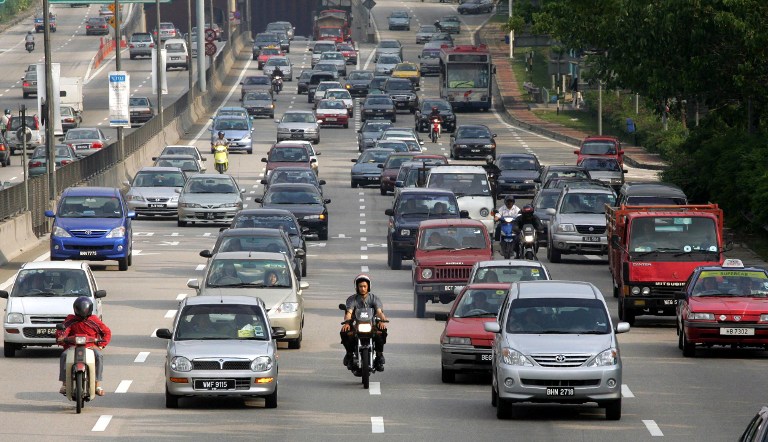FEBRUARY 1 — About six years ago, I found myself working for a senator in Kuala Lumpur. I would go through parliamentary Bills and highlight my concerns about any proposed laws to him.
He had an unhealthy preoccupation with traffic violation issues. Speeding, running the red lights, illegal parking, stopping in the yellow box, Mat Rempits, you name it…
It is not the sexiest thing to debate in the highest rubber-stamping body in the land but he was truly into it. Unlike him, traffic matters bored me. I felt they had little national importance in light of other fields of policymaking.
I ventured once, “Perhaps, we should focus on other issues.” But he was the senior senator and I was the young punk.
Life is full of irony sometimes. Part of me is turning into him after all those years.
I feel the traffic situation has worsened significantly since my time with the senator and I grumble as I drive. The toxicity of life on the road is slowly seeping into my being. I curse loudly alone in my car. I struggle to keep my middle finger down. I try to refrain from honking like a mad man.
In hopes of becoming a better person, I aim to drive and so, curse less by relying more on trains and Uber. Yet driving still makes absolute sense in many circumstances. And so each day is yet another day of boiling blood pressure.
Many park on both sides of the road, more than ever and always. In the residential areas of Datuk Keramat and near the entrance to Bukit Gasing forest reserve, vehicle owners turn a two-lane road into a single lane without a single thought for other road users.
Things are just as horrible on Jalan Kerinchi where one man would coolly park in the middle of the road and force hundreds to go through a chokepoint. Many more have the audacity to park by the side of major trunk roads, like by Jalan Tun Razak in front of the menacing dark monolith that is Umno’s headquarters or Jalan Sultan Ismail in the busy business district. In Bangsar and Damansara Utama, double-parking and loud prolonged angry horns are a daily occurrence.
Red lights are increasingly being run over in the suburbs and in the city. Even when they stop for the lights, drivers would halt their vehicles well past the white line and on the pedestrian path. Zebra crossings are meaningless. There is also no respect for the yellow box anymore while queue jumpers are a fact of Malaysian life.
Do the offenders care about their violations? Do they feel guilty? Videos of traffic violators verbally abusing police officers for stopping them are aplenty online.
These are the days when committing a wrong is a right and righting a wrong is just wrong, from the bottom to the top of our society.
Whatever the causes — overly pro-car policy, subpar town planning, inadequate public transport, etc. — the result is us putting ourselves at the centre of the universe. Being inconsiderate is the default value. We personally ignore the adverse effect of our anti-social behaviour to others at large. Rules are nothing unless they conveniently side with us personally.
I wonder about the significance. Is this a petty concern of no national importance as the young me believed once?

I have travelled widely to know disrespect for traffic rules is a not a problem that belongs exclusively to Malaysia. I would not dare use the zebra crossing in Jakarta or Bangkok. In some other big South-east Asian cities, stopping at the red light can be downright awkward when everyone else runs through it and honks at you for stopping.
But in developed countries like the US, Europe and Australia, and closer to home, Singapore, traffic rules are better complied with generally.
The contrast hits me on the head. I would casually suggest there is a connection between how advanced a society is and its members’ observance of traffic rules.
The link does not sound tenuous to me. Traffic rules, after all, are a set of conventions that ultimately form an institution governing interactions on the road. Other institutions like the judiciary sound grander than the traffic one but that does not detract the fact the latter is still an institution.
If you can accept advanced societies have better institutions, then it will not be a huge logical leap to believe advanced countries will have better and more respected traffic institutions, which they do.
Here at home, as I have written above, I feel things on the roads have gotten worse.
I wonder if that is a tiny manifestation of our discouraging Malaysian regression.
* This is the personal opinion of the columnist.






















